Meet Vijaya Kumar Ivaturi, the ex-CTO of Wipro, who's 'not business as usual'
Our Techie Tuesdays candidate for the week, Vijaya Kumar Ivaturi, fondly known as IVK among his colleagues, has nothing usual about him. He’s one of the core team members who set up telecom business division for Wipro in the 90s and served as its CTO later. His is an interesting journey, as there aren’t many techies out there like IVK who have lived through and defined the Indian technology ecosystem for more than three decades.
A few years ago, a logistics startup founder pitched his business idea to a room full of investors. While he was explaining how his company uses a Hungarian method in the algorithms, he was stopped by an investor, who asked, “Do you model your business as a geospatial graph theory problem or a linear programming problem or a machine learning problem? Your opening line was your solution is an AI solution but the method you quoted was a linear programming method.” The founder admitted that he didn’t use graph theory or machine learning so far.
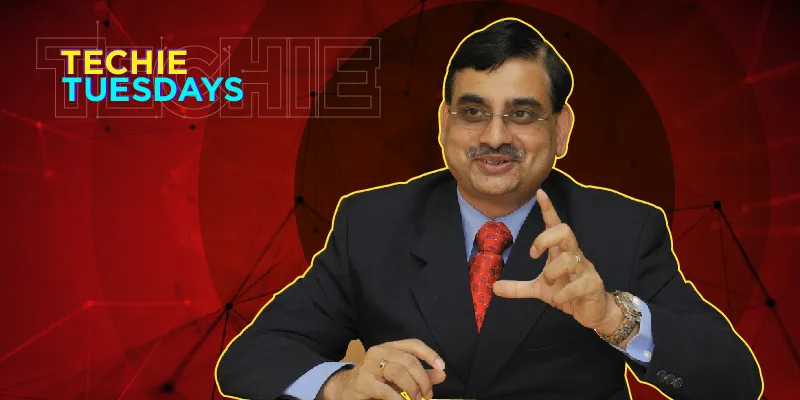
Never before had the founder been questioned along these lines. But never before had he encountered someone like Vijaya Kumar Ivaturi, aka IVK. The following lines by Krish Murali Eswar, Chief Executive Officer, Sheltrex Developers South, and Co-Founder, IdeinLab, perhaps best describe our techie for the week:
I have always carried an image of IVK as a technical genius. Little did I know that he is also an expert in innovation and a brilliant social scientist. Few could go as deep as IVK in technology areas. Far less could enjoy the cusp of technology and behavioural science.
IVK has lived through almost four decades of technology revolution in India and played an important role in it. His expertise in telecommunication and understanding of business helped him lead the way for Wipro in setting up and becoming an industry leader in the telecom businesses division. From defence to telecom to computing systems to behavioural economics and cognitive science now, IVK has worked in all disciplines within the organisation.
In a recent conversation with YourStory, he took us through these chapters of his life. The experience helped me relive the Indian tech evolution through his eyes.
Related read - Amit Ranjan—the entrepreneur who crossed the startup-government chasm
Physics+Maths+Languages+History+…
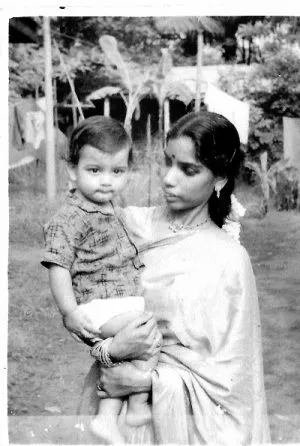
IVK’s parents moved from the coastal town of Kakinada to Hyderabad in the 60s. His father was a zoology professor in a medical college and his mother pursued sociology. IVK’s interest in mathematics and physics was influenced heavily by his maternal grandfather, who had a PhD in physics under Sir CV Raman, and later served as director general of All India Radio. He inherited an interest in linguistics (Sanskrit, Telugu and English) from his parents and grandparents. Coming from a family of professionally-trained Hindustani and Carnatic musicians, IVK was always interested in the physics of music. He says, “Even today I tune in to the radio and listen to it every day at 10 p.m.” While he appreciated all forms of art, what separated IVK from the rest was his keenness in pursuing scientific analysis of art.
He says,
You can argue that I don't enjoy the moments of life as they occur. I'm very methodical but I picked interests that always required some depth of thinking.
The tech journey begins
Going by what an uncle, who was a professor, suggested, IVK opted for electronics and communications engineering at Osmania University. Computer science engineering wasn’t offered then.
In his first year of engineering, IVK’s father suffered a paralytic stroke and was bedridden for six months. Even after recovery, he couldn't perform his tasks as a professor. This made IVK decide that he would stay back with his family and not pursue higher studies, as he needed to work. He says, “In a family of so many academicians, it was unusual for me to not pursue further studies but that’s what the situation demanded then.”
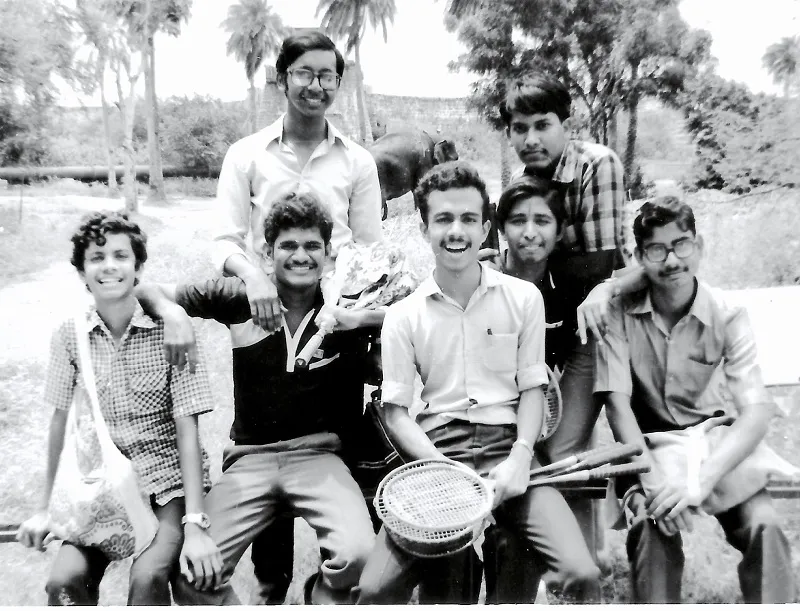
IVK’s aunt was a director at the Defence Electronics Research Laboratory (DLRL) and in-charge of the Akash missile programme. She encouraged him to take up a project in microwave receivers. IVK adds, “I was excited about phased array radars, which was an upcoming technology then.”
Telecom – the beginning
After graduating in 1987, IVK joined IndChem Electronics in Chennai, which offered him a job in its telecom department. They were the licensee of C-DOT technology. C-DOT had then started to build Class-5 telephone switches. He says, “The lower end of these switches, PBXs (private branch exchanges) were all imported. Most companies then used to buy one system and play with it and see how much of it could be localised—manufactured or assembled locally. Once they figured that out, they asked for a licence for the software.”
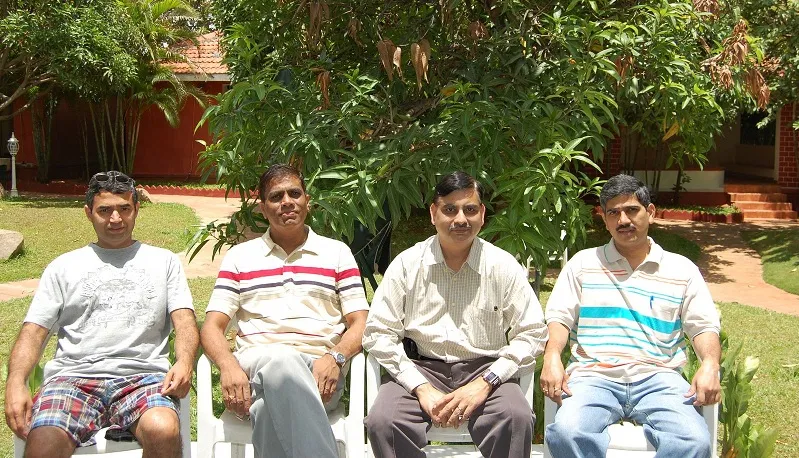
IndChem Electronics bought a Key Telephone System (KTS) and asked IVK to analyse it. That meant he had to test it, open it, and figure out the system, circuit boards and other components. When C-DOT invited IndChem Electronics, along with BHEL, Maharashtra Electronics and others for a joint development programme of PBX, IVK participated on behalf of IndChem. He worked for almost a year and a half in developing features on PBX.
While working, he realised that there was a disconnect between the tech vision, product market fit and the sales team. Usually, there are 8 or 16 ports per card and there are 12 or 6 cards or boards per exchange. This translates to 96 ports, wherein one port is an extension line. This made it unsuitable for hotels, and hospitals with 100 rooms/beds, because of the mismatch between the hexadecimal model of production and decadecimal model of consumer behaviour. IVK solved this issue.
He says, “I knew that I couldn't add a new board so I had to see if there's any board that wasn't getting used. We figured out that the conferencing board was not being used, and there are two conferencing boards, each with eight ports.” He converted a conferencing board into an extension board, and thus added eight more extensions. That became a hit and IndChem outsold other players in the market.
Also read - Meet Mitesh Agarwal—the ‘brain’ of BITS who’s heading technology at Oracle India
IVK meets Satya Nadella
IVK joined Wipro's Systems and Communications division in 1990. He was one of the first telecom persons in the company. Though he was recruited for his skills in telecom, he ended up working in defence systems from 1990 to 1996. He was transferred to Hyderabad to work with the Defence Research and Development Organisation (DRDO) on electronic intelligence (electronic warfare). This was the beginning of software driven systems in defence, and a lot of them involved embedded systems and programming, a reason why they wanted to work with Wipro.
IVK worked for about one and a half years on DRDO projects and then with Electronics Corporation of India Limited (ECIL) and the Indian Space Research Organisation (ISRO). He built a test jig for anti-braking systems in light combat aircraft for Hindustan Aeronautics Limited (HAL). This was done using C and assembly programming in PC environment.
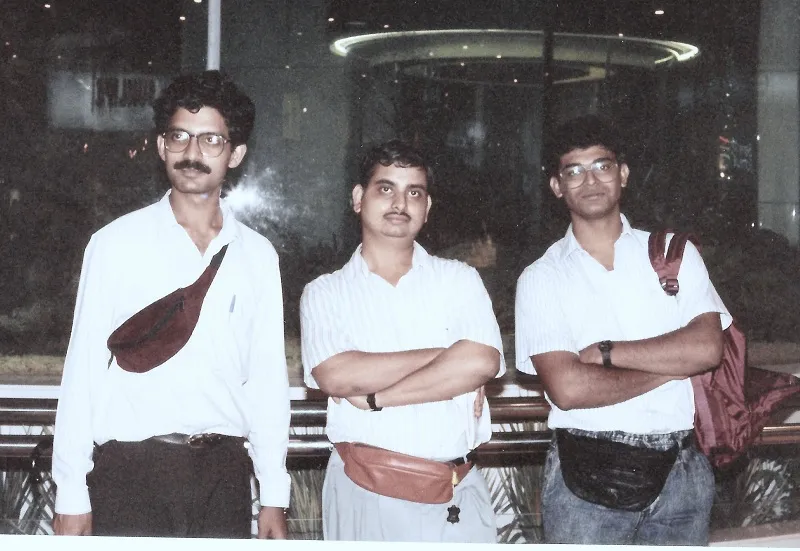
In 1991, IVK was sent to the Bay Area for eight months on work. He recalls, “We worked out of a villa on the Pebble Beach, one of the most famous areas in California then. It was a project where we were supposed to port an existing product for a US Navy requirement.”
The product was similar to MS Office, which has a spreadsheet (SuperCalc, Lotus 123 and Excel), word processor and database. It worked in both UNIX environment and Windows environment. The other people working with IVK included the dBase III creator, who sourced the deal, and a person from Sun. This person from Sun was Satya Nadella.
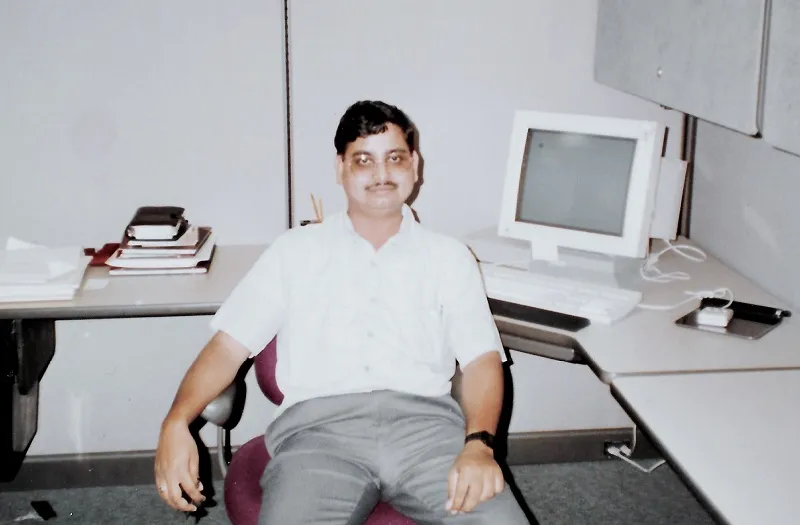
After coming back to India, IVK got married and then went back to US, this time to work with the engineering team of VMX Inc, a voicemail company. VMX holds more than 90 patents in voicemail and it was building the first mixed media messaging products then. IVK explains, “This is the pre-Internet era. We could access a voice mail remotely from anywhere but not the fax. We integrated fax in this. I worked on Fax group 3 and Fax group 4. It was built on a proprietary hardware with a high end UNIX systems.”
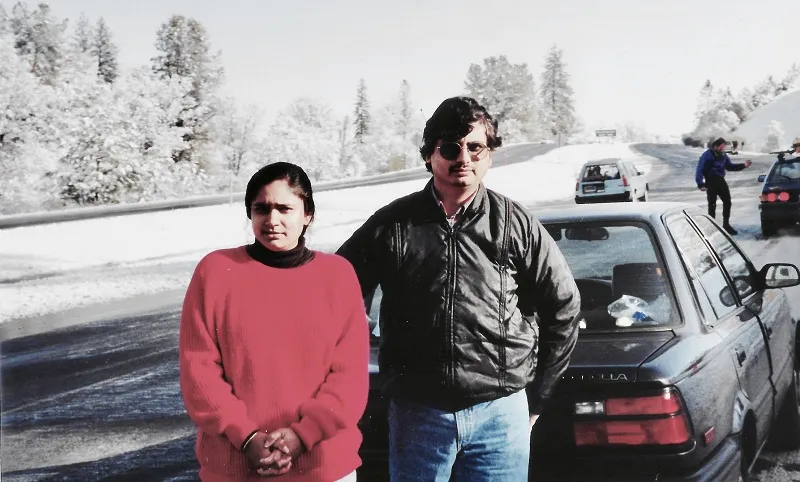
After coming back to Bangalore, IVK started working with one of the ADE (Aeronautical Development Establishment) labs. He worked on building real-time processing systems for aircraft. He wrote software using pSOS and iRMX real-time operating systems (RTOS). He recalls a funny incident: “After finishing my work, naively I went to the director and asked if he could arrange an aircraft sortie to test this software in real time. The director replied, 'You think it's some auto? You are asking me to fly an aircraft. This needs planning and booking.'”
You may also like - How a small-town commerce graduate became CTO of a multibillion-dollar company
The telecom boom
In the late nineties, Wipro’s global businesses started to pick up and IVK got involved in setting up the telecom business for the company. He worked on the company's European programmes, especially in 1997-98, which saw a boom for the telecom outsourcing business, as everybody wanted new products because the local loop became unregulated. According to the Telecommunications Act of 1996, the right of access to the last mile or local loop became open and competitive by decoupling the service from the local loop operator. This resulted in a lot of IP telephony players.
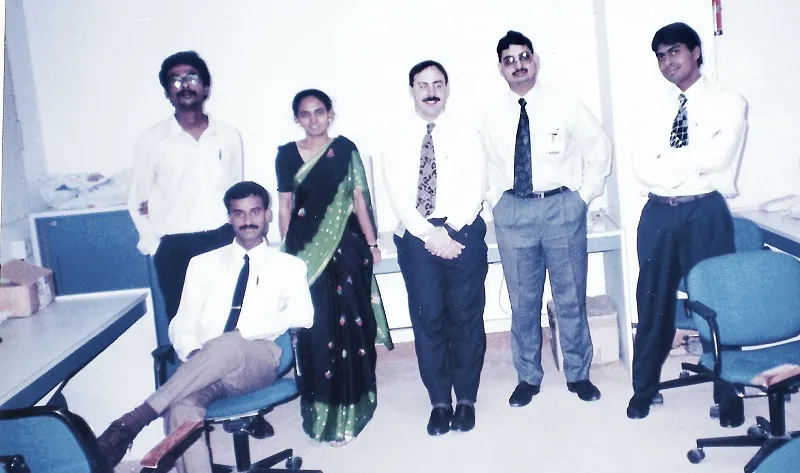
IVK was then asked if he could emulate a hard terminal into a PC terminal with the same features, but without any change in the software. It is basically an IP telephony extension to the central office switches. He explains, “We spent six months to build an IP telephony gateway using H.323 protocol to solve the problem.”
IVK then moved out of pure account-related roles and into a technology role, where he went about setting up all the new centres of technology for the company. These included IP telephony, intelligent networks, WAP gateways, network management systems. He also incubated many technologies in Wipro like MPLS (Multiprotocol Label Switching), OSPF (Open Shortest Path First routing protocol for Internet Protocol), optical switching and network edge routing. IVK became the default tech guy in the company, and telecom became Wipro's best performing division.
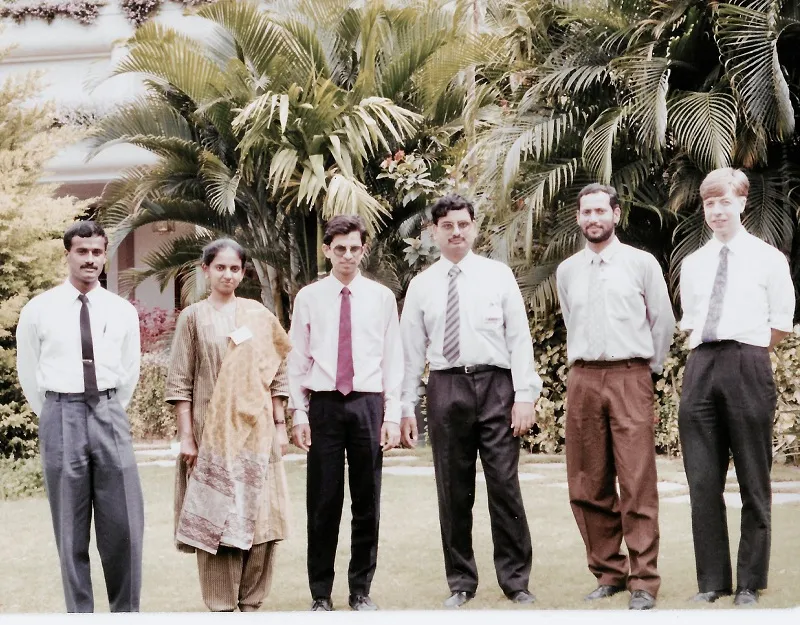
By 2004-05, IVK moved into the wireless business for Wipro, which included phones, networks and overseas-based systems. He says, “I acquired the research labs of Ericsson's in India and Nokia in Scandinavia (bought and merged full businesses - networks, base stations, mobile phones). I was known as the man who created the wireless business for Wipro.”
Also read - Meet Leena N, the woman evangelising lean thinking and extreme programming in India
Wipro CTO
IVK became the CTO of Wipro in 2008 and started working on the enterprise side. He had incubated cloud, service oriented architecture(SOA), information management and mobility projects. He made sure that the company had a theme-driven CTO function, i.e., the CTO defines the themes that are important for the next three years. Similar to mutual funds the sectors to harvest, and the ones to incubate or take a bet on were defined.
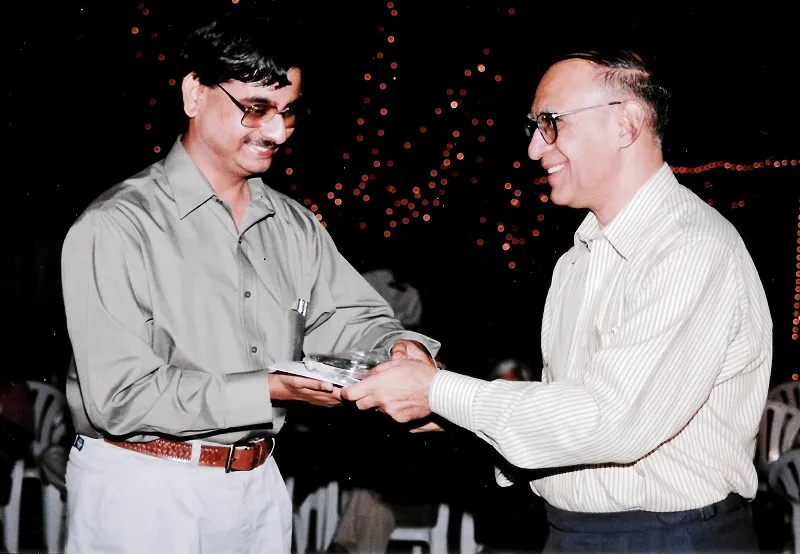
IVK believes that a CTO should be forward-looking. While the business units are busy with next quarter, a CTO can have a slightly longer horizon. In addition, the CTO should also define when a project ceases to be his project and the control shifts to other teams. He says, “I made sure that is if Wipro has to invest proactively, you've to go through me so that it matches the theme and there's some kind of portfolio management.”
He published the theme and asked people in the business units who were a part of his extended team to figure out projects in that business that relate to the theme. This allowed him to invest in technologies like social computing which has high visibility but not much money. He says,
I think that brought some kind of portfolio discipline. We defined - What will you pick, why will you pick, what will you grow, when will you retire, and when will you kill the project?
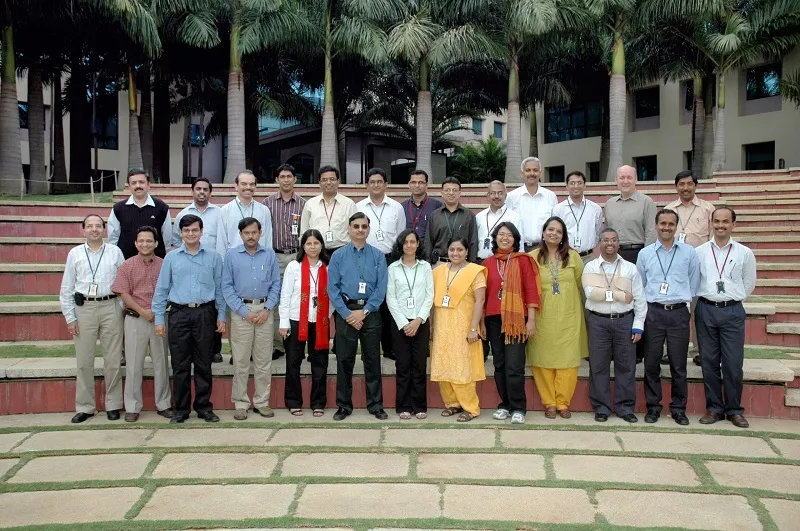
IVK believes that a corporate needs a CTO because they don't want surprises. He says, “It's always good to know what's coming up and then decide at what level and speed we should go. We're always cognizant of the fact that some of our current business will get impacted.” He adds, “I'm not business as usual. My idea is to do things that others don't attempt. A lot of times, your biggest cash cow is your biggest risk. “
Initially, all the investments of Wipro's in technology were centralised, and IVK distributed them. Later on, when the management changed, all investment in technology required by business is done in business and the CTO was only responsible for the future. He explains, “This model didn’t allow the company to invest in business, which isn't making money now but wants to make money later. They will starve in this model.” As it didn't leave much scope for the CTO, IVK bid goodbye to Wipro.
Related read - How a marketing and sales person ended up as a digital czar—Ashish Gupta’s story
Entrepreneurial innings
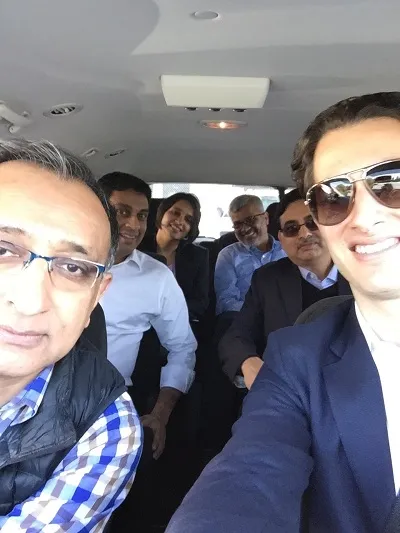
IVK was already involved in startups while at Wipro and had an inkling for entrepreneurship. He believes that his association with startups was a logical sequence.
In 2012, he was introduced to his co-founders (Crayon Data) Suresh Shankar and Srikant Sastri, through Indian Angel Network and friends. Initially they wanted him to help on outsource product development, but later realised that their vision for the firm was so prophetic that it requires in-house development. They set up the engineering team in Chennai and Singapore.
Going by behaviorial economics and cognitive science, the team at Crayon Data felt that buying is an orthogonal dimension. The behavioral economics view is based on Roman philosophy - 'you're what you do', which is the foundation of all transaction analytics. Cognitive computing works exactly the opposite way, which is the Greek philosophy - 'you're what you think'. IVK adds, “We believe that cross category is a better insight of a person. The transaction is only a context. We build a taste graph of different categories. Then we take the transaction data of the customer and apply this on the context.”
It is a graph-based behavioral science, cognitive-driven computing at the backend. At the front end, it's an outbound marketing analytics solution for experiential sectors. IVK gives an example - Why chocolates are placed next to music and not rice? Because chocolates drive emotions so is music.
Technology through the decades
According to IVK, the last four decades of technological evolution in India can be broadly categorised into following:
- In the eighties, most of the market was domestic and we all built solutions to save foreign exchange. That's why we got local datacom, telecom products and computing systems.
- In the nineties (post reforms), the same thing was used for global market in term of skillsets (lab on hire kind of model). Growth came primarily from semiconductors, computing systems and communication. All the sale was based on skill sets we had.
- From 1996, rise of enterprise packages started coming. In the previous era, enterprise applications were custom built.
- In the beginning of 2001, it also started adding BPOs as well as growing design services outsourcing across different sectors.
- In mid-2000s it became more vertical, and retail solutions, logistics solutions and manufacturing emerged. The organisation structures also changed accordingly.
- After 2010, when the web businesses started becoming mainstream, the social and mobile became big (mobility and BYOD). It is all about digital transformation. IT became the enabler and everything became digital channel. A lot of times it's about transforming the company using the new age channels of engagement.We are trying to integrate customer experience management with the digital with the supply chain, which is also on digital. It involves process consulting, strategy consulting, IT consulting, operations consulting.
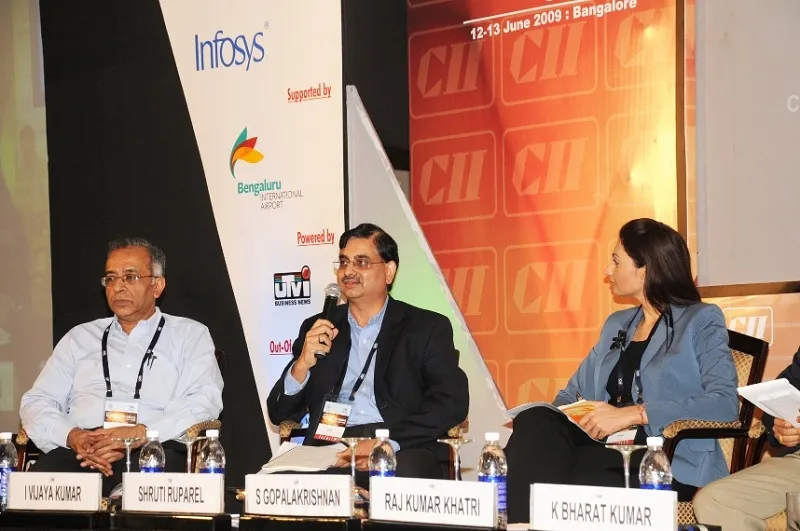
IVK believes that going forward the argument would be for blended workforce, on how many would be humans. He adds, “It is coexistence with assisted decision making. The question we've to ask is not what machines can do but what humans can do.”
According to IVK, the difference between machine intelligence and human intelligence is that analysis can be done by machine but the synthesis is still human. He says,
Knowledge of ignorance, challenge of embodiment and absence of intrinsic motivation are what makes us human. We excel in areas with intrinsic motivation and unsupervised learning.
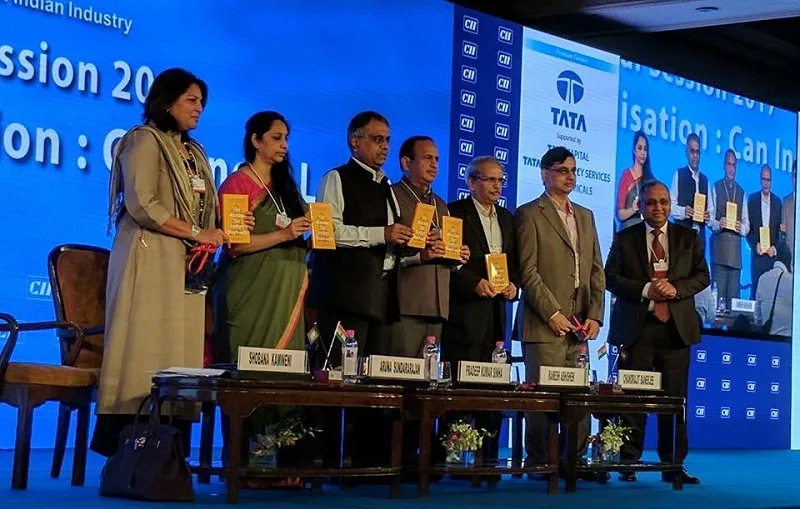
The IVK way
In my interaction with IVK, I could see him living up to the description given by Krish, who had called him a technical genius. And the following incidents will convince you as well:
- Once in the airport, a person asked if he was a pilot by looking at his watch. He was then wearing a Titanium 5 watch purchased from a kickstarter project by a New York based journalist. He then recognised that the other person was a pilot himself looking at his watch, which was an aviator divers watch. He has a collection of 20+ unique watches.
- He also collects pens. The one in his pocket during our interaction was Sheaffer pen which comes with lifetime guarantee. He said he’ll buy it because of the company’s patented design where the nib is the part of the body. He buys fountain pens for nib width and viscosity of ink.
- Though he’s a corporate customer of Hilton (Wipro exec) he still stayed in Radisson Blu during his visits to Stockholm. Hilton-owned Grand Central Scandic was just on the other side. It was just because he shaved after bath, and Radisson Blu had anti-fogging mirrors (which weren’t there in Grand Central Scandic). In winters, it was almost -15 degrees and he would have to wait for 20 minutes (after bathing) before he could see anything in the mirror.
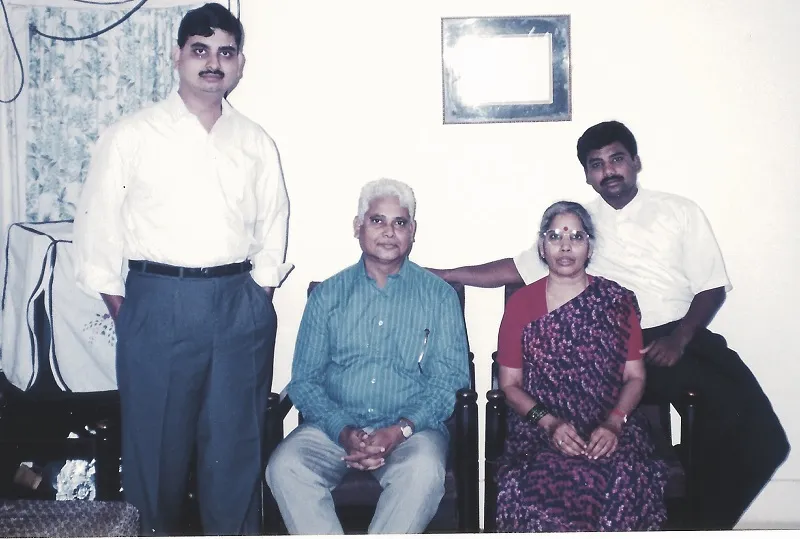
IVK likes things that are complex and uncertain. He is someone who gets involved and doesn’t like to be an armchair critic. He thinks like a scientist and acts like an engineer. He says,” I'm a cross-domain fellow who mixes the socio-anthropological queries with machine learning.”
According to IVK, innovation is all about reading the weak signals, and he always looks at the triangle of technology, sociology and society.
You can connect with him on LinkedIn and Twitter.
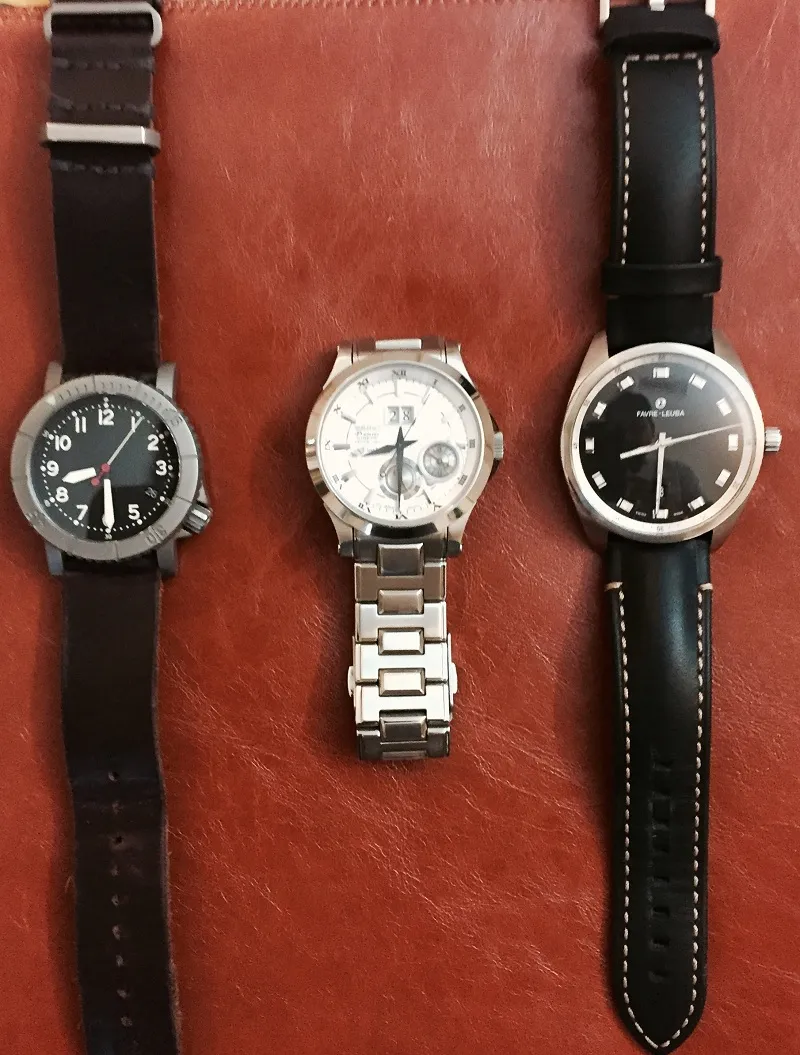
(Centre) Seiko Kinetic perpetual – this watch charges a capacitor with your hand movement and in turn it runs the watch. The hands stop when you stop wearing it, but start from the current time when wear it again! (not from the time it stopped!)
(Right) Favre Leuba – IVK picked a watch on marina beach in Chennai when he was a kid as it was found in the sand in non-working state. He did not know what it was and took it back to Hyderabad. His maternal grandfather told him that this was a Swiss watch called Favre Leuba! After 40 years, he bought this watch for his 25th Wedding Anniversary as the same brand is now bought by Tata and brought to India by them!







